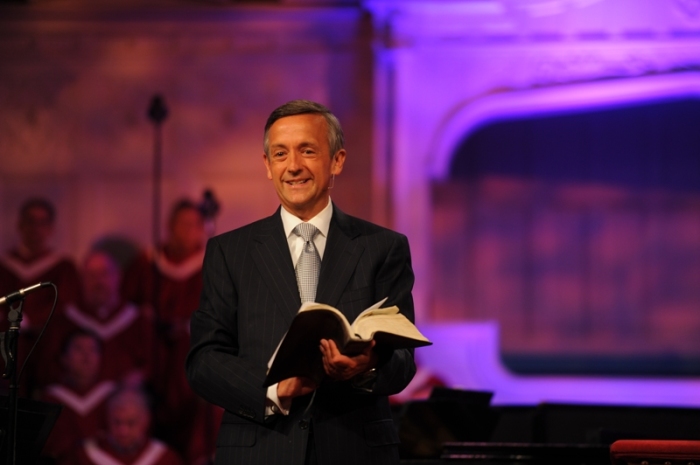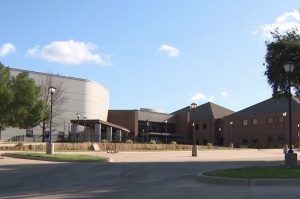Robert Jeffress Shares 'The Passion and the Promise' of Jesus Christ

Pastor Robert Jeffress, senior pastor of First Baptist Church in Dallas, is preaching his Easter message on the death and resurrection of Jesus Christ in a sermon titled, "Jesus: The Passion and the Promise."
As a guest on Alan Colmes' Fox News radio program earlier this week, he was asked this question: "Which is more important to you? The death of Jesus or the resurrection of Jesus?"
"I thought that coming from someone of the Jewish faith that was a very interesting question," Jeffress shared with The Christian Post Thursday. "And as I thought about it, I thought, both are of equal importance."
He continued, "Evangelicals tend to race over the crucifixion to get to the resurrection and people of the Catholic faith, many times, concentrate on the crucifixion of Christ over the resurrection. The fact is that both are important, and this Sunday I'm going to explain the importance of both events to the Gospel message."
Knowing that there will be many people attending his Easter service who are either nominal Christians or those who don't profess any faith at all, Jeffress explained that he crafts his Easter message to reach out to unbelievers by sharing the Gospel, and equipping Christians with the answers they need so they can go out and share their faith with others.
"Easter Sunday is a marvelous opportunity to share the Gospel with those who don't know Christ. I realize that, in our congregation, we'll have a high number of unbelievers there who are coming as guests or simply there because of the holiday," Jeffress said. "I use my Easter message for two purposes: No. 1 to reach unbelievers with the Gospel of Christ and give them an opportunity to respond to the Gospel; and secondly, to equip Christians with the answers that they can share with people about why the Gospel is important and what the essence of the Gospel is."
A conservative Evangelical, Jeffress believes in the literal physical resurrection of Jesus Christ. When asked by CP if it would be alright for a pastor of any denomination to not believe in a physical resurrection that left behind an empty tomb and to share that message with their congregation, he responded by saying that sharing such a belief would corrupt the entire Gospel message.
"To say that the resurrection was not a literal resurrection is to completely negate the clear teaching of not only the Gospels, but also the epistles and the entire New Testament. The Bible is clear: When the disciples looked into the tomb, it was an empty tomb. There was no body left behind," Jeffress said.
"Romans 1:4 says that it is His resurrection from death that is proof that He is the son of God. Jesus received a brand new body, the Bible says, and John the apostle says that he touched Him and he handled Him in His resurrection form," he continued.
"The belief in the resurrection of Jesus Christ from the dead is essential to the entire Gospel message. It's also interesting to note that Paul taught in Colossians Chapter 1 and 1 Corinthians 15 that Christ's resurrected body was a prototype of the body that all believers in Christ will receive."
"If there is no literal body that was raised from the dead and changed then there is no literal body that awaits the followers of Jesus Christ, either," Jeffress added.
As the senior pastor of an 11,000 member church — the church where he grew up and where he hopes to be able to preach for the rest of his life — Jeffress told CP that, for him, Jesus' resurrection is significant in his life for several reasons, but primarily because it proves Jesus' sacrifice on the cross was accepted by God on his my behalf.
"If Christ remained in the grave then it meant that He died not for my sins, but His own sins. But the fact that He was raised from the dead, as Paul said, it is proof that we have been justified by His death. So to me, the resurrection is the proof that Christ's payment for my sins was sufficient."
Scriptures that Jeffress will be reading Sunday include: 1 Corinthians 15:3-4; John 10:17-18; Acts 2:23; 1 Peter 2:21, 23; Nahum 1:3; 1 John 2:2; Colossians 1:13-14; Matthew 16:21; Matthew 17:22-23; John 2:19; Acts 2:23-24, 32; Acts 2:38; 1 Corinthians 15:1-11; John 5:24; John 6:40; John 11:25-26; John 5:24; John 6:40 and John 11:25-26.





























